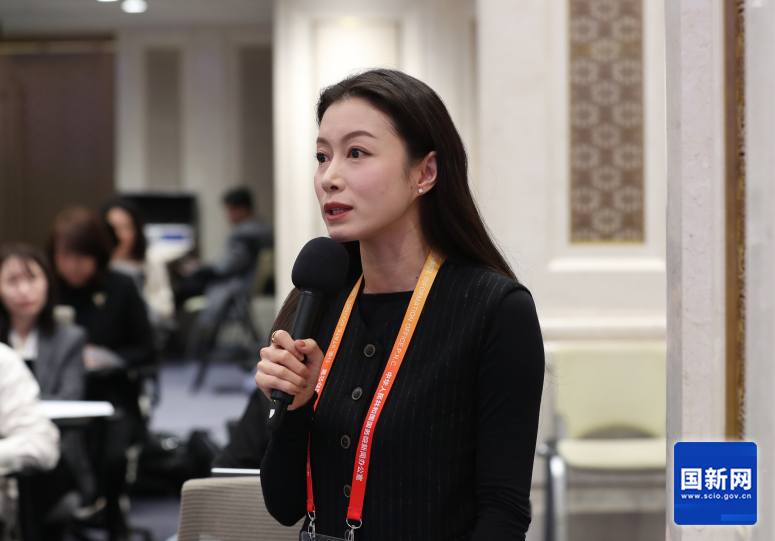
2007年11月全国翻译专业资格(水平)考试
三级笔译实务
Section 1 English-Chinese Translation (英译汉) (60 points)
Translate the following passage into Chinese. The time for this section is 120 minutes.
One of the biggest decisions Andy Blevins has ever made, and one of the few he now regrets, never seemed like much of a decision at all. It just felt like the natural thing to do.
In the summer of 1995, he was moving boxes of soup cans, paper towels and dog food across the floor of a supermarket warehouse, one of the biggest buildings here in southwest Virginia. The heat was brutal. The job had sounded impossible when he arrived fresh off his first year of college, looking to make some summer money, still a skinny teenager with sandy blond hair and a narrow, freckled face.
But hard work done well was something he understood, even if he was the first college boy in his family. Soon he was making bonuses on top of his $6.75 an hour, more money than either of his parents made. His girlfriend was around, and so were his hometown buddies. Andy acted more outgoing with them, more relaxed. People in Chilhowie noticed that.
It was just about the perfect summer. So the thought crossed his mind: maybe it did not have to end. Maybe he would take a break from college and keep working. He had been getting C's and D's, and college never felt like home, anyway.
"I enjoyed working hard, getting the job done, getting a paycheck," Mr. Blevins recalled. "I just knew I didn't want to quit."
So he quit college instead, and with that, Andy Blevins joined one of the largest and fastest-growing groups of young adults in America. He became a college dropout, though nongraduate may be the more precise term.
Many people like him plan to return to get their degrees, even if few actually do. Almost one in three Americans in their mid-20's now fall into this group, up from one in five in the late 1960's, when the Census Bureau began keeping such data. Most come from poor and working-class families.
That gap had grown over recent years. "We need to recognize that the most serious domestic problem in the United States today is the widening gap between the children of the rich and the children of the poor," Lawrence H. Summers, the president of Harvard, said last year when announcing that Harvard would give full scholarships to all its lowest-income students. "And education is the most powerful weapon we have to address that problem."
Andy Blevins says that he too knows the importance of a degree. Ten years after trading college for the warehouse, Mr. Blevins, 29, spends his days at the same supermarket company. He has worked his way up to produce buyer, earning $35,000 a year with health benefits and a 401(k) plan. He is on a path typical for someone who attended college without getting a four-year degree. Men in their early 40's in this category made an average of $42,000 in 2000. Those with a four-year degree made $65,000.
Mr. Blevins says he has many reasons to be happy. He lives with his wife, Karla, and their year-old son, Lucas, in a small blue-and-yellow house in the middle of a stunningly picturesque Appalachian valley.
"Looking back, I wish I had gotten that degree," Mr. Blevins said in his soft-spoken lilt. "Four years seemed like a thousand years then. But I wish I would have just put in my four years."
Why so many low-income students fall from the college ranks is a question without a simple answer. Many high schools do a poor job of preparing teenagers for college. Tuition bills scare some students from even applying and leave others with years of debt. To Mr. Blevins, like many other students of limited means, every week of going to classes seemed like another week of losing money.
"The system makes a false promise to students," said John T. Casteen III, the president of the University of Virginia, himself the son of a Virginia shipyard worker.
网络译文:
英译汉
安迪布莱文思曾做过的最大的、同时也是他现在极少为之后悔的决定之一,看起来一点也不像个决定。倒像是自然而然做的事。
1995年夏天,他在一家超市的仓库上班,把汤罐头、纸巾和狗粮箱子在地板上搬来搬去,这家超市是弗吉尼亚西南部最大的建筑物之一。天气酷热。他刚到这开始第一个学年时,希望在暑期挣点外快,这份工作在那时显得不可思议。当时他还是个瘦得皮包骨的十几岁的小伙子,有着沙质金发和瘦削的布满雀斑的脸。
但是,他明白应该把坚苦的工作干好,即使他是他家族的第一个大学生。很快,他挣的钱高达6.75美元一小时,比他父母挣得都多。他有女友和同乡作伴。安迪待他们更友好宽容。芝尔豪伊镇的人注意到了。
这只是个完美的夏天。于是一丝念头闪过他的脑海,兴许这一切不必结束,兴许他可以暂时休学继续工作。他的学业成绩得了一些C和D,无论如何,大学从来不像家里。
“我喜欢努力干活,完成工作,挣一份薪水,”布莱文思回忆说。“我只知道我不想离开。”
于是他反而退了学,随之加入了美国最大和成长最快的年轻人群体之一。他成了辍学生,尽管未毕业也许是更准确的定义。
很多像他那样的人计划重新取得学位,即使实际上很少人那么做。20岁左右的美国人几乎有三分之一成为这个群体中的一员,高于20世纪60年代的五分之一,那时人口调查局开始保存这一数据。其中大部分人出生于穷人和工薪阶层家庭。
最近几年这种差距已扩大。“我们必须意识到,美国今天最严重的国内问题是日益分化的贫富孩子之间的差距,”哈佛校长劳伦斯.H夏默尔在宣称哈佛应给所有收入最低的学生颁发全额奖学金时说。“教训是解决这一问题的最强有力的武器。”
安迪布莱文思说他也知道学位的重要性。在拿大学生涯换仓库工作的十年后,已29岁的布莱文思先生,仍在同一家超市工作。他干到了产品采购,年薪35000美元,有健康保险和一份401(k)计划。他走的路,是那些进入大学却未取得4年学位的人走的一条典型的路。2000年,40多岁的此类人平均年薪为42000万美元。而那些取得了4年学位的人年薪则为65000美元。
布莱文思先生说他有很多理由高兴。他同他的妻子卡拉及周岁的儿子卢卡斯,住在风景如画的阿巴拉契亚山谷中部的一座蓝黄相间的小房子里。
“回想起来,我希望我已经取得了那个学位,”布莱文思先生轻快地说。“那时4年似乎像1000年。但是我希望自己只是投入了4年。”
为什么如此多的低收入学生辍学,这是一个没有简单答案的问题。许多高中在将青少年送进大学的准备工作上没做好。学费吓得学生甚至不敢申请,或让其他入学的人欠下多年的债。布莱文思先生,像其他门路有限的学生一样,每周去上课,就像每周在赔钱。
“教育体制给了学生们一个虚假的承诺,”弗吉尼亚大学校长约翰.T.卡斯廷三世说,他本人是一个弗吉尼亚船厂工人的儿子。
韩刚老师译文:
One of the biggest decisions Andy Blevins has ever made, and one of the few he now regrets, never seemed like much of a decision at all. It just felt like the natural thing to do.
安迪﹒布莱文斯曾做过许多重大决定,也很少会为做出的决定感到后悔,但有一个决定至今让他难以释怀。不过,这个决定当时看来根本就算不上什么决定,感觉只是顺其自然而为之。
In the summer of 1995, he was moving boxes of soup cans, paper towels and dog food across the floor of a supermarket warehouse, one of the biggest buildings here in southwest Virginia. The heat was brutal. The job had sounded impossible when he arrived fresh off his first year of college, looking to make some summer money, still a skinny teenager with sandy blond hair and a narrow, freckled face.
1995年的夏天,安迪﹒布莱文斯到一家超市仓库工作。这个仓库是弗吉尼亚西南部最大的建筑之一,他在这里负责搬运成箱的汤罐头、纸巾和狗粮。这里闷热难当,对于刚刚读完大一前来打工的他来说似乎是一份难以接受的差事。安迪﹒布莱文斯当时骨瘦如柴,头发呈沙金色,脸庞瘦削长有雀斑。他来这里打工就是想趁暑假赚点钱。
But hard work done well was something he understood, even if he was the first college boy in his family. Soon he was making bonuses on top of his $6.75 an hour, more money than either of his parents made. His girlfriend was around, and so were his hometown buddies. Andy acted more outgoing with them, more relaxed. People in Chilhowie noticed that.
虽然安迪﹒布莱文斯是家里的第一个大学生,但是他很清楚,哪怕再苦再累也要把工作做好。一开始他的小时工资是6.75美元,这比父母的小时工资还高,而且他很快就拿到了奖金。当时身边有女朋友和老乡陪伴,他整个人更加开朗乐观,奇洛威的人们也注意到了他的这一变化。
It was just about the perfect summer. So the thought crossed his mind: maybe it did not have to end. Maybe he would take a break from college and keep working. He had been getting C's and D's, and college never felt like home, anyway.
整个夏天他过得非常惬意,有个想法不由划过心头:也许不必结束这份工作,休学接着工作也不失为一个选择。当时他在大学里的考试成绩很不理想,不是C就是D,而且在学校里感觉一点也不自在。
"I enjoyed working hard, getting the job done, getting a paycheck," Mr. Blevins recalled. "I just knew I didn't want to quit."
“我很享受这种过程:辛勤工作,完成任务,然后领取工资”,安迪﹒布莱文斯回想当时的感受时说,“当时我只是不想放弃这份工作。”
So he quit college instead, and with that, Andy Blevins joined one of the largest and fastest-growing groups of young adults in America. He became a college dropout, though nongraduate may be the more precise term.
后来他选择退学,加入了辍学就业的青年大军。在美国这是一个较为庞大的青年群体,而且仍以较快的速度不断壮大。就这样,他成了大学辍学生,或者更准确来说是非大学毕业生。
Many people like him plan to return to get their degrees, even if few actually do. Almost one in three Americans in their mid-20's now fall into this group, up from one in five in the late 1960's, when the Census Bureau began keeping such data. Most come from poor and working-class families.
许多像他这样大学退学的人计划重返校园获取学位,但是真正能付诸行动者仍是少数。美国人口普查局从二十世纪六十年代晚期开始统计大学辍学就业群体的情况,当时在二十五六岁上下的年轻人中大学辍学就业者的比例为五分之一,而现在这一比例已上升至约三分之一,其中大部分人来自于贫困和工薪家庭。
That gap had grown over recent years. "We need to recognize that the most serious domestic problem in the United States today is the widening gap between the children of the rich and the children of the poor," Lawrence H. Summers, the president of Harvard, said last year when announcing that Harvard would give full scholarships to all its lowest-income students. "And education is the most powerful weapon we have to address that problem."
近些年来富裕和贫困家庭背景的学生之间差距不断拉大。去年哈佛大学校长劳伦斯﹒ H ﹒萨默斯宣布将向所有低收入家庭的学生提供全额奖学金。他说,“我们必须认识到,美国当今最为严重的国内问题是富裕家庭子女与贫困家庭子女之间的差距越来越大,”“缩小差距最有效的途径就是教育。”
Andy Blevins says that he too knows the importance of a degree. Ten years after trading college for the warehouse, Mr. Blevins, 29, spends his days at the same supermarket company. He has worked his way up to produce buyer, earning $35,000 a year with health benefits and a 401(k) plan. He is on a path typical for someone who attended college without getting a four-year degree. Men in their early 40's in this category made an average of $42,000 in 2000. Those with a four-year degree made $65,000.
安迪﹒布莱文斯说他也知道大学学位很重要。安迪﹒布莱文斯今年二十九岁,从十年前辍学到现在,他一直都在这家超市连锁公司工作。他现在已经晋升为公司采购员,年薪3.5万美元,有医疗保险和养老保险。他现在的状况是大学辍学就业群体的一个缩影。根据2000年的统计,对于四十出头的男性而言,没有大学学位的人平均年薪为4.2万美元,有大学学位的人则为6.5万美元。
Mr. Blevins says he has many reasons to be happy. He lives with his wife, Karla, and their year-old son, Lucas, in a small blue-and-yellow house in the middle of a stunningly picturesque Appalachian valley.
安迪﹒布莱文斯说,他现在过得还算比较幸福。他的家坐落在风光旖旎的阿巴拉契亚山谷中,他现在与妻子卡拉和刚一岁的儿子卢卡斯住在一所蓝黄相间的小房子里。
"Looking back, I wish I had gotten that degree," Mr. Blevins said in his soft-spoken lilt. "Four years seemed like a thousand years then. But I wish I would have just put in my four years."
“现在回想起来,当时要是能拿到大学学位就好了,” 安迪﹒布莱文斯以柔和又不失活泼的口吻说道,“那时大学四年感觉遥遥无期。当时要是熬过那四年就好了。”
Why so many low-income students fall from the college ranks is a question without a simple answer. Many high schools do a poor job of preparing teenagers for college. Tuition bills scare some students from even applying and leave others with years of debt. To Mr. Blevins, like many other students of limited means, every week of going to classes seemed like another week of losing money.
这么多有经济困难的大学生选择辍学确实是个问题,但解决这个问题也绝非易事。许多高中教学质量不尽如人意,大学学费高昂令很多学生望而却步,那些申请就读的学生则要花数年时间才能还清贷款。对于像安迪﹒布莱文斯这样家庭条件不好的学生而言,上一星期课等于少赚一星期钱。
"The system makes a false promise to students," said John T. Casteen III, the president of the University of Virginia, himself the son of a Virginia shipyard worker.
身为弗吉尼亚大学校长的约翰﹒T﹒卡斯汀三世出身于弗吉尼亚一个造船工人的家庭。他说,“教育体系给学生做了一个虚假的承诺。”
 天之聪教育
天之聪教育
 2012-09-17
2012-09-17
 天之聪教育
天之聪教育
 604次
604次


 点赞(0)
点赞(0)

 收藏
收藏

 收藏资讯
收藏资讯

 收藏资讯
收藏资讯

 收藏资讯
收藏资讯

 收藏资讯
收藏资讯